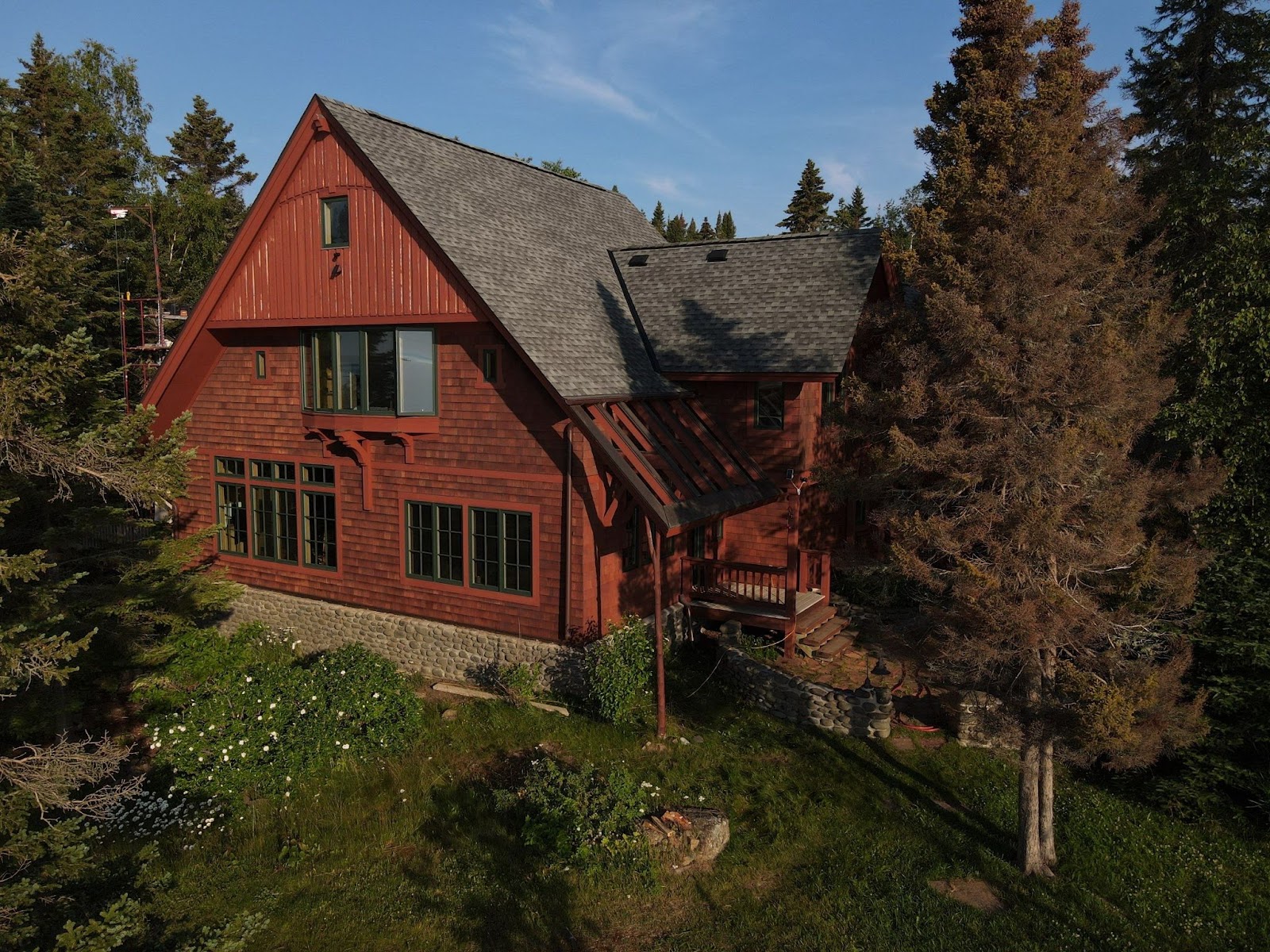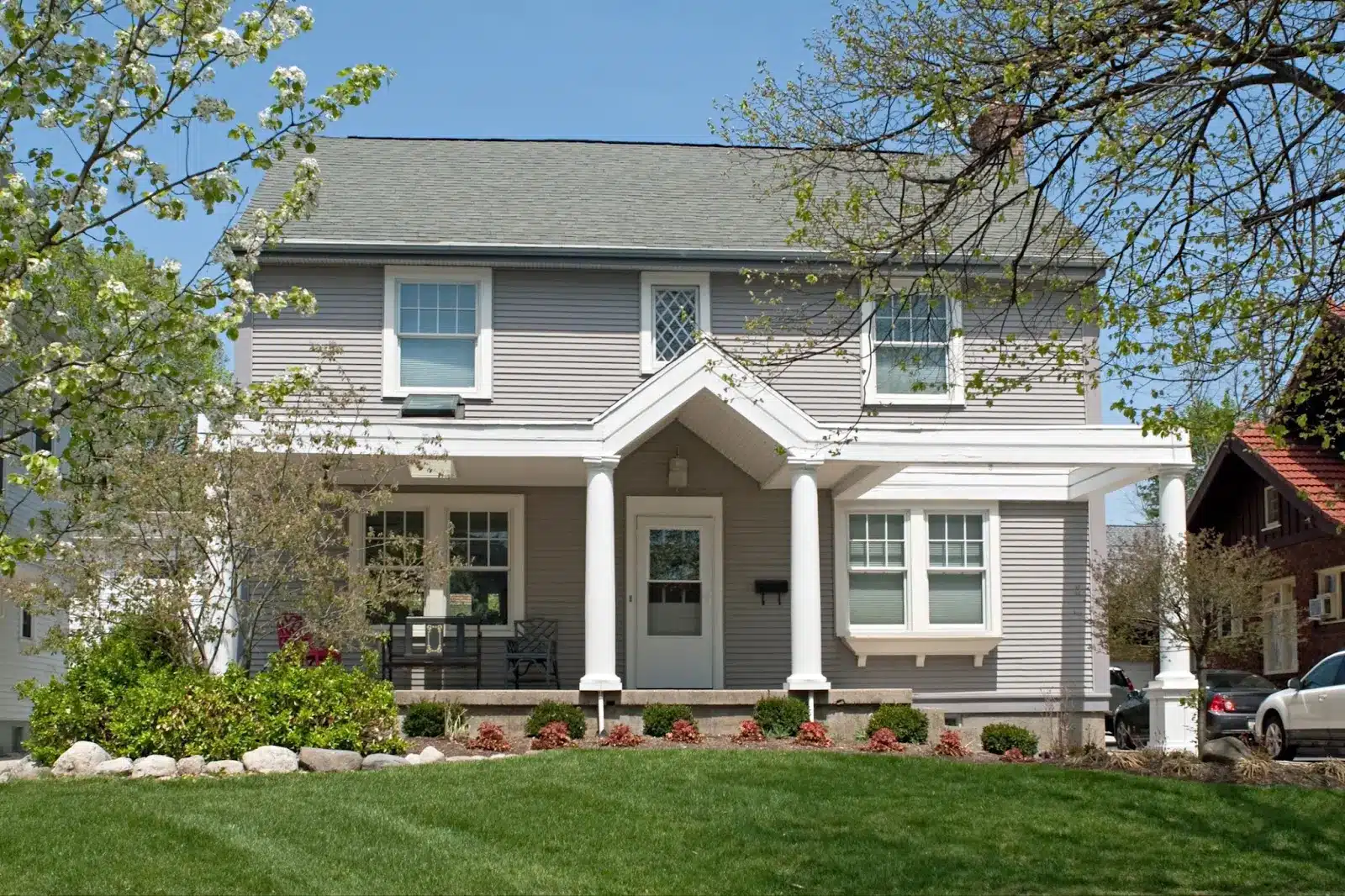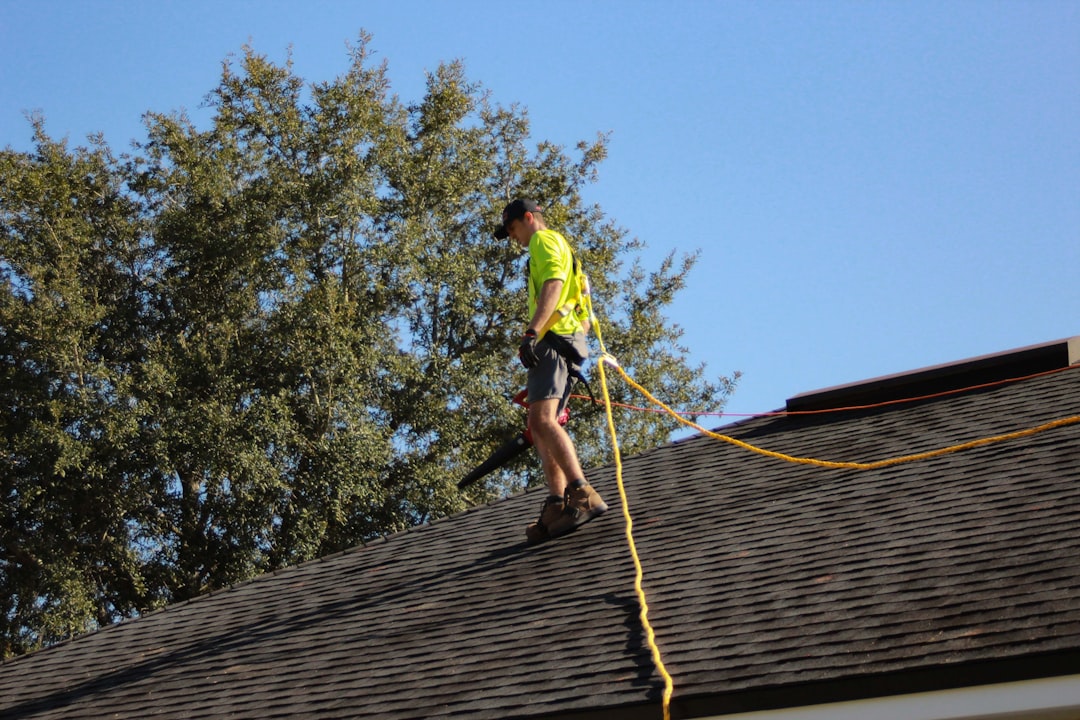Introduction
Home roofing is a crucial aspect of maintaining and enhancing the value of your home. From protecting your house against harsh weather conditions to improving curb appeal, the right roof can make all the difference. If you’re considering a new roof, here are a few key benefits:
- Durability: Protects your home from elements like rain, wind, and snow.
- Energy Efficiency: Helps regulate interior temperatures, reducing energy costs.
- Aesthetic Appeal: Enhances the look of your home, boosting its market value.
- Cost-Effectiveness: Options available for various budgets, offering long-term savings.
A new roof is an investment that pays off in many ways.
Homeowners often face the dilemma of choosing the right roofing material. With options like asphalt shingles, metal roofing, and more, it can be overwhelming. Each material comes with its own set of advantages and drawbacks, which will be explored in this guide.
Types of Roofing Materials
Choosing the right home roofing material is crucial for durability, aesthetics, and cost. Here are some common options:
Asphalt Shingles
Asphalt shingles are the most popular choice for homeowners. They are affordable, easy to install, and come in a variety of colors and styles. These shingles are made from a fiberglass base topped with asphalt and mineral granules, providing a durable and weather-resistant roof.
- Affordability: Asphalt shingles are the most cost-effective roofing option.
- Lifespan: Typically last 15-30 years, depending on the quality and local weather conditions.
- Common Choice: Ideal for most climates and architectural styles.

Metal Roofing
Metal roofing is known for its durability and longevity. It can withstand extreme weather conditions like hail and high winds. Metal roofs are available in various materials such as steel, aluminum, and copper.
- Cost Range: Higher initial cost but offers long-term savings.
- Durability: Can last 50 years or more.
- Types of Metal: Options include aluminum (lightweight and corrosion-resistant), copper (highly durable and aesthetically pleasing), and zinc (eco-friendly).
TPO Roofing
TPO (Thermoplastic Olefin) roofing is a single-ply membrane used mainly for flat roofs. It’s known for its energy efficiency and resistance to UV rays, chemicals, and punctures.
- Affordability: Mid-range cost.
- Durability: Can last 15-20 years with proper maintenance.
- Installation: Typically installed in large rolls and heat-welded at the seams.
Concrete and Clay Tiles
Concrete and clay tiles offer a unique aesthetic appeal and are highly durable. They are often used in Mediterranean and Spanish-style homes.
- Durability: Can last 50-100 years.
- Aesthetic Appeal: Available in various colors and styles.
- Cost: Higher initial cost but low maintenance.
Roof Deck and Underlayment
The roof deck and underlayment are crucial components of any roofing system. The roof deck is the base layer, usually made of plywood, while the underlayment provides an additional layer of protection against moisture.
- Importance: Essential for a stable and waterproof roof.
- Materials: Commonly used materials include plywood for the deck and synthetic or felt paper for the underlayment.
- Installation: Proper installation ensures the longevity and effectiveness of the roofing system.
Roof Flashing and Drip Edge
Roof flashing and drip edges are critical for directing water away from the roof and preventing leaks.
- Function: Flashing seals joints and edges, while drip edges guide water off the roof.
- Materials: Usually made of metal such as aluminum or galvanized steel.
- Installation: Installed at roof edges, valleys, and around chimneys and vents.
Roof Ventilation
Proper roof ventilation is vital for maintaining the longevity of the roofing system and the comfort of the home.
- Importance: Prevents moisture buildup and reduces heat in the attic.
- Types: Ridge vents, soffit vents, and gable vents.
- Benefits: Improves energy efficiency and extends the life of the roof.
Choosing the right roofing material involves considering factors like budget, climate, and aesthetic preferences. Now, let’s delve into the costs associated with roof replacement.
Cost of Roof Replacement
Replacing a roof is a significant investment, and understand the costs involved. Let’s break down the average costs, factors affecting these costs, and regional variations, particularly in Texas and Houston.
Average Costs in Texas
In Texas, the cost of replacing a roof can vary widely. On average, homeowners can expect to pay between $6,700 and $80,000, with the typical roof replacement costing around $11,500 for an average-sized home. This broad range is due to several factors, including the type of materials used and the complexity of the installation.
Cost of Metal Roofs in Houston
Metal roofs are popular in Houston due to their durability and resistance to extreme weather conditions. The cost of installing a metal roof in Houston typically ranges from $10,000 to $40,000. Factors such as the type of metal (e.g., aluminum, copper, zinc), the size of the roof, and labor costs play a significant role in determining the final price.

Factors Affecting Roof Replacement Costs
Several key factors influence the cost of a roof replacement:
Material Choice
- Asphalt Shingles: Generally the most affordable option, costing about $4 to $7 per square foot.
- Metal Roofing: More expensive, ranging from $10 to $40 per square foot depending on the type of metal.
- Concrete and Clay Tiles: These materials can cost between $10 and $20 per square foot, offering durability and aesthetic appeal.
Roof Size
The size of your roof significantly impacts the total cost. Larger roofs require more materials and labor, increasing the overall expense. For example, a 2,000-square-foot roof might cost around $14,000, while a 3,000-square-foot roof could be as much as $21,000.
Labor Costs
Labor costs can vary based on the complexity of the job and the region. In Texas, labor costs for roofing typically range from $2 to $7 per square foot. More complex jobs, such as those involving steep roofs or difficult-to-access areas, can drive labor costs higher. Contractors may charge between $40 and $60 per hour, but flat-rate estimates are common for large projects.
Regional Variations
The cost of roof replacement can also vary based on location. In areas with higher living costs, such as major cities, you can expect to pay more for both materials and labor. Additionally, local building codes and permit fees can add to the overall cost.
For example, in Houston, the cost of living and the demand for roofing services can lead to higher prices compared to rural areas. It’s essential to get multiple estimates from reputable contractors to understand the cost range for your specific location.
Understanding these factors can help you budget more effectively for your roof replacement project. Next, we’ll explore the role of insurance in covering roof replacement costs.
Insurance and Roof Replacement
Replacement Cost vs. Actual Cash Value
When it comes to home roofing insurance, there are two main types of coverage: replacement cost and actual cash value.
Replacement cost coverage pays for the full cost to repair or replace your roof at current prices. This means if your roof gets damaged, the insurance will cover the cost to fix it as if it were brand new. The benefit here is you won’t have to pay out-of-pocket for the difference in cost due to wear and tear.
Actual cash value coverage, on the other hand, pays less if your roof is older or showing wear. It takes depreciation into account, so you’ll get less money for an older roof. The drawback is that you might have to cover a significant portion of the repair costs yourself.
Benefits:
– Replacement cost: Covers full repair costs, less out-of-pocket expenses.
– Actual cash value: Lower premiums, but higher out-of-pocket costs for older roofs.
Drawbacks:
– Replacement cost: Higher premiums.
– Actual cash value: Less coverage for older roofs, higher out-of-pocket expenses.
Filing a Claim
If a storm, tree, or something else damages your roof, you can file a claim. Here’s a simple process to follow:
- Document the Damage: Take clear photos of all the damage. If you have “before” photos, even better.
- Contact Your Insurance: Call your insurance company with your policy number and explain the damage.
- Adjuster Inspection: An adjuster will inspect the damage to validate your claim.
- Partial Payment: If you have replacement cost coverage, you’ll get a partial payment first.
- Start Repairs: Once repairs start, you’ll receive the remaining amount of your claim.
Remember: Insurance won’t pay for a new roof just because it’s old or worn out. The damage must be from a covered event.
Maintaining Your Roof
Regular maintenance can prevent costly repairs and keep your insurance coverage intact. Here are some tips:
- Remove tree limbs hanging over or near your roof.
- Check for missing or damaged shingles after a storm.
- Inspect your chimney for loose bricks.
- Keep gutters clean to prevent water damage.
- Hire a roof inspector every few years to find issues early.
Insurance Implications: Your insurance company will inspect your roof when you apply for coverage. A well-maintained roof can lead to lower premiums, while a poorly maintained roof can result in higher costs or even denial of coverage.
By understanding your insurance options and keeping your roof in good shape, you can ensure that you’re prepared for any unexpected damage. Next, we’ll discuss how to find and hire a reputable roofing contractor.
Hiring a Roofing Contractor
Choosing the right roofing contractor is crucial for a successful roof replacement or repair. Let’s dive into some practical tips to help you make an informed choice, avoid scams, and understand what sets Empire Roofing apart.
Tips for Hiring
1. Check Credentials: Ensure the contractor is licensed and insured. This protects you from liability in case of accidents and ensures they meet local building codes.
2. Ask for References and Reviews: A reputable contractor should provide references from past clients. Check online reviews to see what others are saying about their work.
3. Get Multiple Quotes: Don’t settle for the first quote you receive. Compare prices and services from at least three contractors to ensure you’re getting a fair deal.
4. Review the Contract Thoroughly: Make sure the contract includes details about the scope of work, materials to be used, timeline, and payment schedule. Don’t sign until you understand everything.
5. Verify Certifications: Look for certifications from reputable organizations like Owens Corning Platinum Preferred Contractor or GAF Master Elite™ Contractor. These certifications indicate a high level of expertise and quality.
Avoiding Scams
Scams are unfortunately common in the roofing industry. Here are some warning signs and steps to protect yourself:
1. Beware of Door-to-Door Salesmen: Be cautious of contractors who show up uninvited, especially after a storm. Legitimate contractors rarely solicit work this way.
2. Watch for High-Pressure Tactics: If a contractor pressures you to sign a contract immediately or asks for a large upfront payment, it’s a red flag.
3. Verify Their Identity: Check their business license, insurance, and contact information. You can also look them up on the Better Business Bureau website.
4. Avoid Cash Payments: Always pay by check or credit card. This provides a paper trail in case something goes wrong.
5. Get Everything in Writing: Verbal agreements are not enough. Ensure all promises, warranties, and terms are documented in the contract.
Empire Roofing
Empire Roofing stands out for its commitment to quality and customer satisfaction. Here’s what makes them a top choice for your roofing needs:
1. Experience and Expertise: With decades of experience, Empire Roofing has handled a variety of roofing projects, ensuring they can tackle any challenge.
2. Top-Tier Certifications: Empire Roofing is an Owens Corning Platinum Preferred Contractor and a GAF Master Elite™ Contractor. These certifications reflect their dedication to high standards and quality workmanship.
3. Comprehensive Services: From initial inspections to final installations, Empire Roofing offers a full range of services. They handle everything, so you don’t have to worry about a thing.
4. Transparent Communication: Empire Roofing keeps you informed at every step of the process. They provide clear timelines, budgets, and updates, ensuring there are no surprises.
5. Strong Local Reputation: Serving the community since 1946, Empire Roofing has built a trusted name in the industry. Their long-standing presence means they are familiar with local regulations and can provide tailored solutions.
6. Customer-Centric Approach: Empire Roofing prioritizes customer satisfaction. They don’t take any money until you’re completely satisfied with the work. This commitment ensures you receive the best service possible.
By following these tips and considering a reputable contractor like Empire Roofing, you can ensure a smooth and successful roofing project. Next, we’ll answer some frequently asked questions about home roofing to help you further navigate your roofing journey.

Frequently Asked Questions about Home Roofing
What type of roof is cheapest?
Asphalt shingles are typically the most affordable roofing option. They are popular due to their low cost and ease of installation.
Cost: Prices for asphalt shingles can vary, but they generally range from $100 to $150 per square (100 square feet).
Lifespan: Asphalt shingles usually last between 15 to 30 years, depending on the quality and maintenance. 3-tab shingles may last up to 20 years, while architectural shingles can last 25 to 30 years.
How much does a new roof cost in Texas?
The average cost of a new roof in Texas can vary widely based on several factors:
- Material choice: Asphalt shingles are cheaper, while metal or tile roofs are more expensive.
- Roof size: Larger roofs require more materials and labor.
- Labor costs: Labor rates can differ by region and contractor.
Regional specifics: In Texas, the average cost for a new asphalt shingle roof ranges from $5,000 to $10,000. For more durable materials like metal or tile, costs can go up to $20,000 or more.
How much does a metal roof cost in Houston?
Cost range: The cost of a metal roof in Houston can range from $10,000 to $25,000, depending on the type of metal used and the roof’s size and complexity.
Influencing factors:
– Type of metal: Steel is generally less expensive than copper or zinc.
– Roof complexity: More complex roof designs require more labor and materials.
– Installation quality: High-quality installations by skilled contractors can cost more but offer better durability and warranties.
By understanding these factors, you can make an informed decision about your home roofing needs. Next, we’ll explore the cost of roof replacement in more detail.
Conclusion
In summary, understanding your home roofing options can make a significant difference in the longevity, aesthetics, and value of your home. Whether you opt for the affordability of asphalt shingles or the durability of metal roofing, being well-informed helps you make the best choice for your specific needs.
Final Tips
- Regular Inspections: Regularly inspect your roof for damage or wear. Early detection can save you a lot of money and hassle.
- Quality Over Cost: While it might be tempting to go for the cheapest option, investing in quality materials and skilled labor can provide better long-term value.
- Insurance Check: Always review your insurance policy to understand what is covered. Knowing the difference between replacement cost and actual cash value can be crucial.
Why Choose Empire Roofing?
At Empire Roofing, we pride ourselves on our local expertise, exceptional quality, and a commitment to customer satisfaction. Our team of professionals is dedicated to helping you through every step of your roofing project, from initial inspection to final installation.
With our financing options, you can invest in a high-quality roof without breaking the bank. Contact us today to schedule your free inspection and see why hundreds of satisfied customers have chosen Empire Roofing for all their home roofing needs.
Understanding your home roofing options and choosing the right contractor can make all the difference. Let Empire Roofing guide you through this essential home improvement journey.

